Let‘s make Pickled Sushi Ginger (or Gari ガリ) at home! It’s easy and simple to do. Refreshing and slightly sweet, it‘s perfect for cleansing your palate as you enjoy delicious sushi.
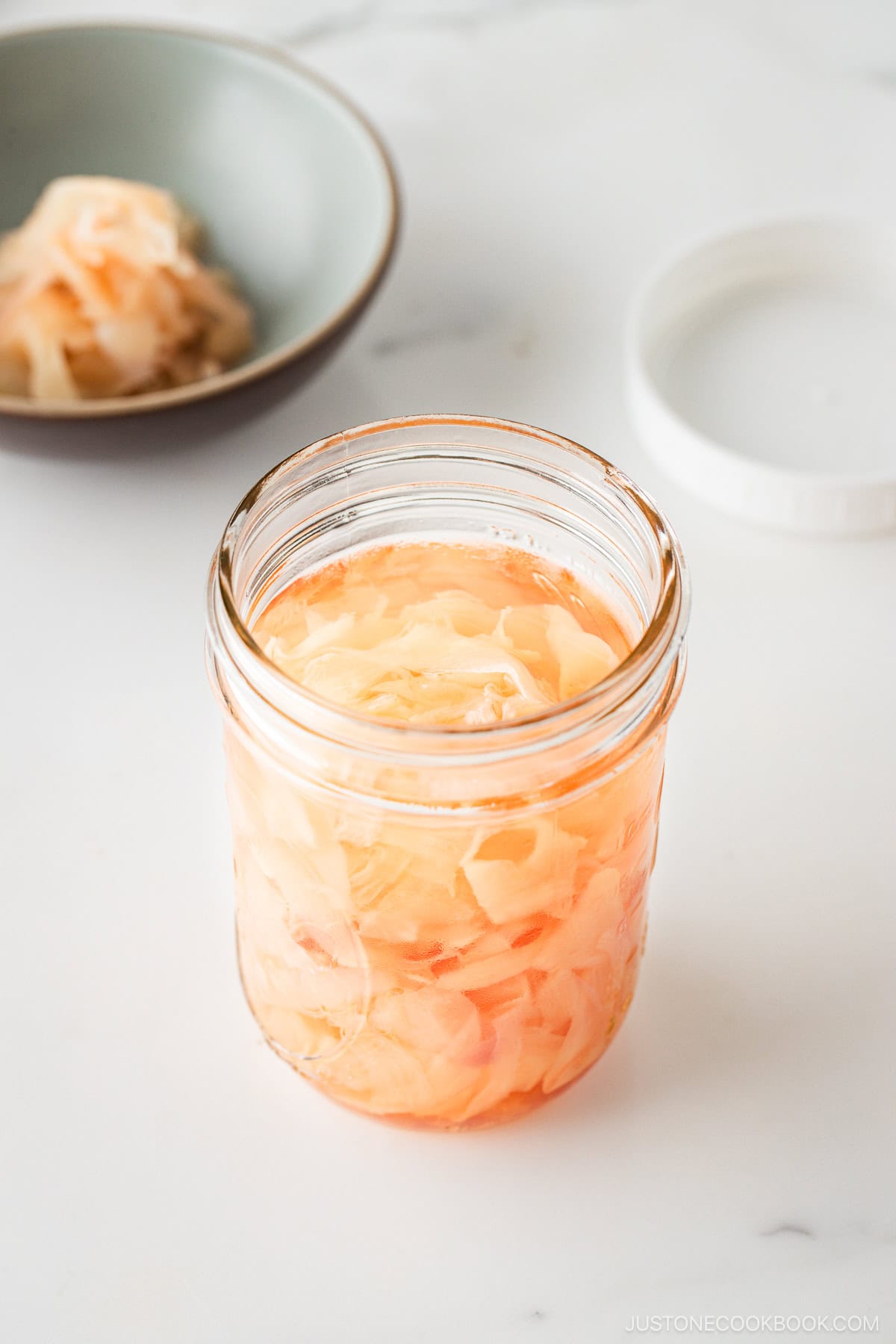
If you enjoy my sushi recipes like Hand Roll Sushi, California Roll, Dragon Roll, and Spicy Tuna Roll, there’s one essential complementary item you need to enjoy with your amazing sushi. And that’s pickled sushi ginger, also known as gari. Let me show you how easy it is to make this delicious pickle at home!
Table of Contents
What is Pickled Sushi Ginger?
In Japan, we call pickled ginger gari (ガリ) or shin-shoga no amazu-zuke (新生姜の甘酢漬け). They are very thin slices of young ginger soaked in sweet vinegar brine (amazu) until blush pink in color. The name gari is an onomatopoeia for the crunching sound of a knife thinly slicing the ginger!
We often serve and eat pickled ginger while eating sushi. It’s an essential part of a sushi meal. The spiciness and sweet vinegar flavor serve as a palate cleanser between courses, allowing you to enjoy different pieces of fish and rolls.
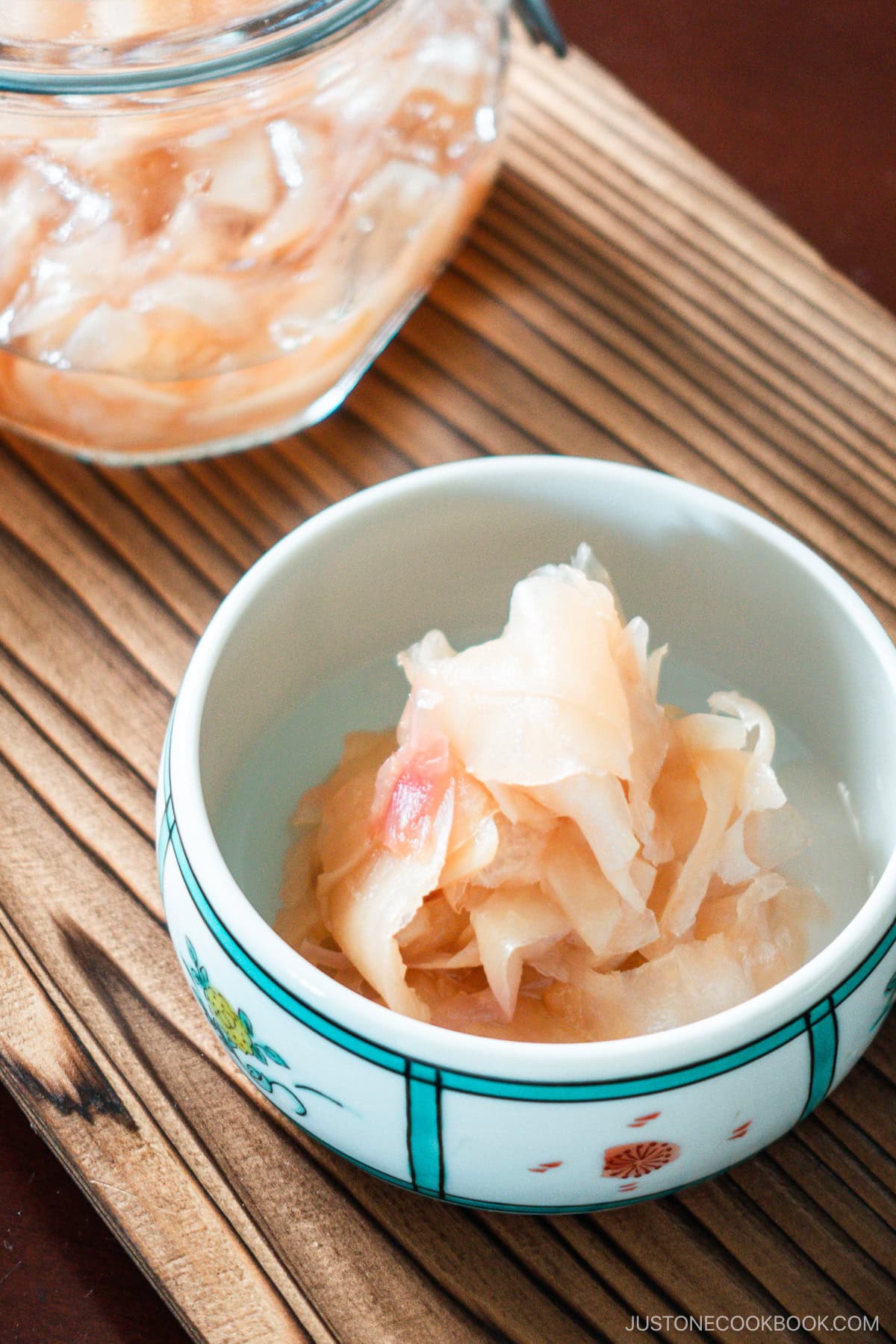
What are Sweet Pickles or Amazuzuke?
There are many types of pickles that we call tsukemono (漬け物) in Japan. We call the sweet type amazu-zuke (甘酢漬け). For the pickling solution, you just need 3 ingredients. Simply put rice vinegar, sugar, and salt in a saucepan and boil, then let cool. You can keep it in the refrigerator for 2-3 months to use in batches.
Do you need to use rice vinegar? Ideally, yes. The taste is mellow, milder, and more refreshing compared to the other types of vinegar. Because of that, you can use less sugar. You must add more sugar if you use another type. For authentic Japanese flavor, go with rice vinegar!
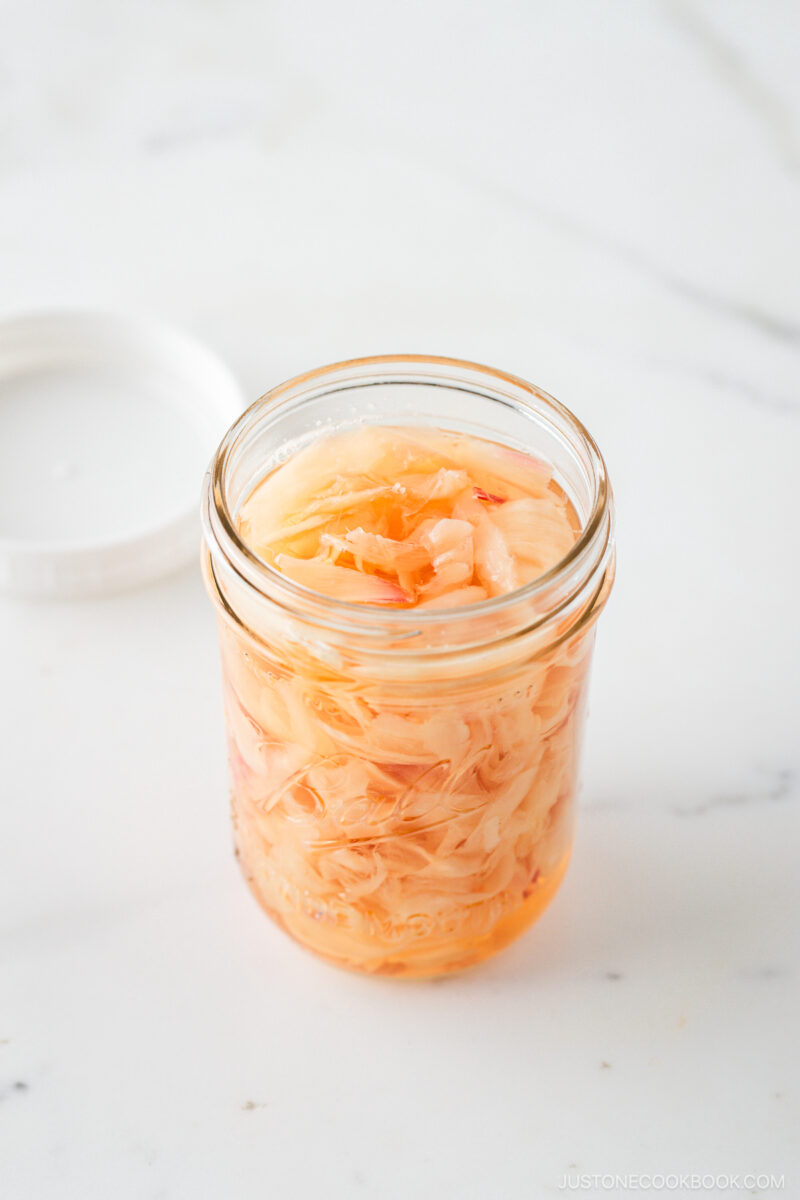
Ingredients for Pickled Sushi Ginger
- young ginger – we’ll talk more about this later
- salt – roughly 3–5% of the ginger weight; I use kosher salt
- rice vinegar, sugar, and salt – for the sweet pickle solution (amazu)
If you use white granulated sugar, the pickling solution will be lighter in color and showcase the pink more visibly (see the image below).
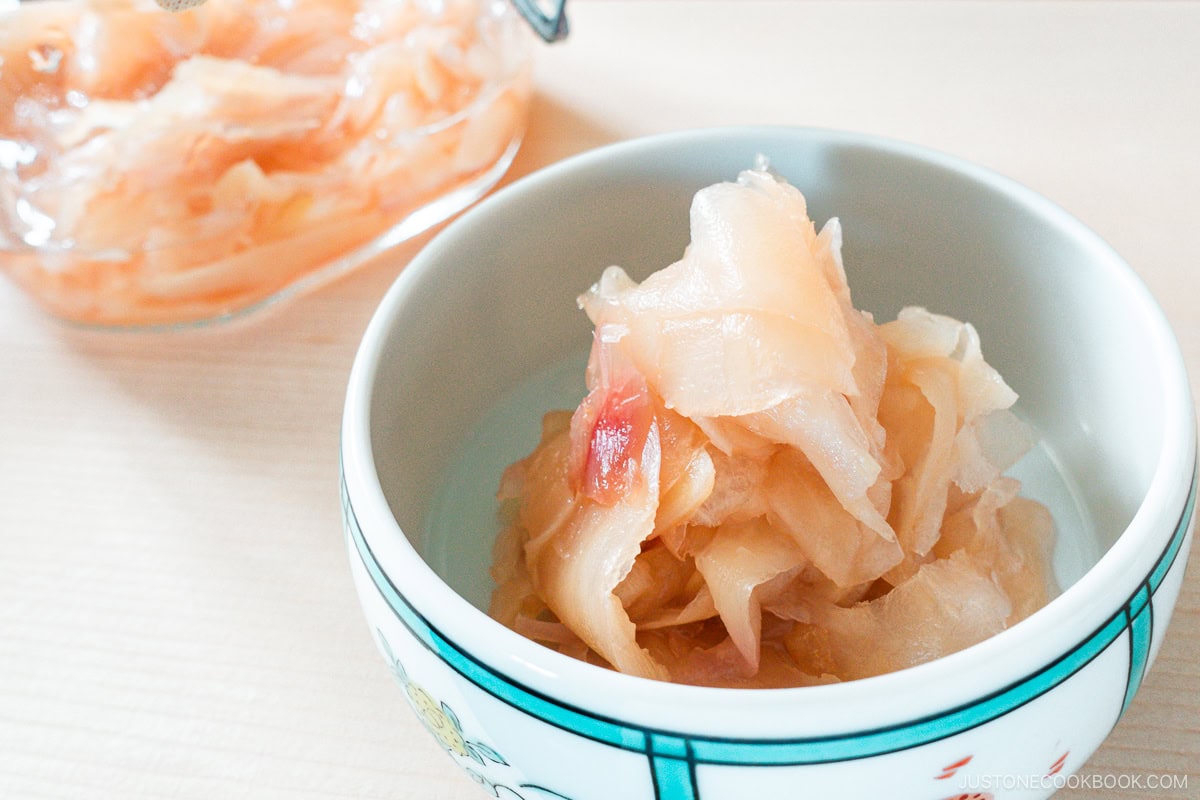
How to Make Pickled Sushi Ginger
This recipe takes just 20 minutes of prep and cook time and a minimum 4 hours of pickling. Here’s an overview, but see my recipe below for full instructions:
- Thinly slice the ginger with a vegetable peeler (this is what I use) or a mandoline slicer. Sprinkle with salt and let it sit for 5 minutes.
- Blanch the sliced ginger in a medium pot of boiling water for 1-2 minutes. Drain.
- Let cool slightly. Spread out the pieces of ginger on a rack to cool and dry a bit. Squeeze the liquid out and put in a sterilized jar.
- Make the sweet pickle solution. Stir the ingredients in a pot and bring to a boil. Cook until the strong vinegar smell evaporates and the sugar dissolves.
- Pour the hot pickling liquid into the jar of ginger. Pickle in the refrigerator for a minimum of 4 hours. Enjoy it the next day or later for even better flavor.
It’s easy to make, and lasts up to a year! If you can get young ginger, make a big batch and keep it for future sushi meals.
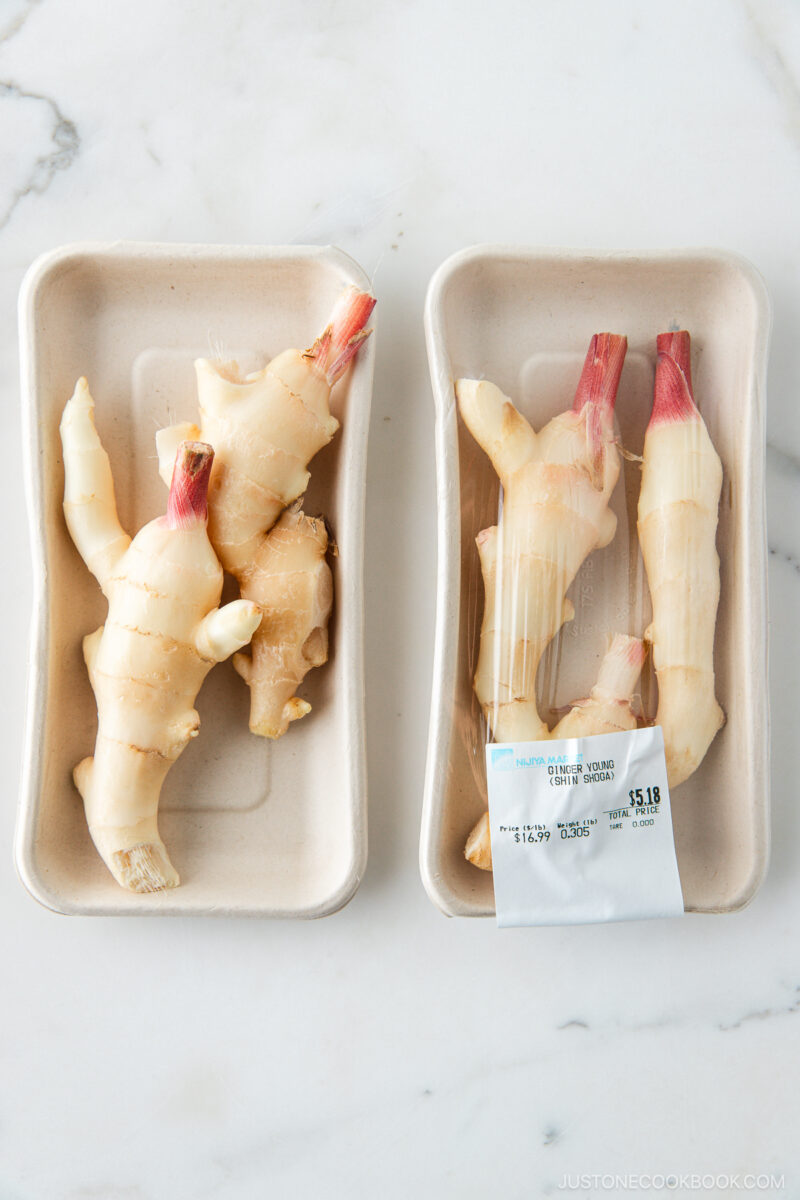
Why Use Young Ginger?
Young ginger has a mild, zesty flavor and a fine fleshy texture. It’s tender and perfect for sushi ginger. Unlike matured ginger, the young ginger’s skin is very thin and easy to peel with your fingers or a spoon.
Sliced young ginger will naturally become light pink from the tips of the young ginger (see the photo below). Many commercial producers artificially dye the pickled ginger pink. If you purchase pickled sushi ginger, you can find some brands that avoid artificial coloring.
Young ginger is harvested and sold in early summer around May or June. You can find it in Asian grocery stores, but sometimes the pink tips are already cut off. You can still make pickled ginger with these, but they won’t be naturally pink.
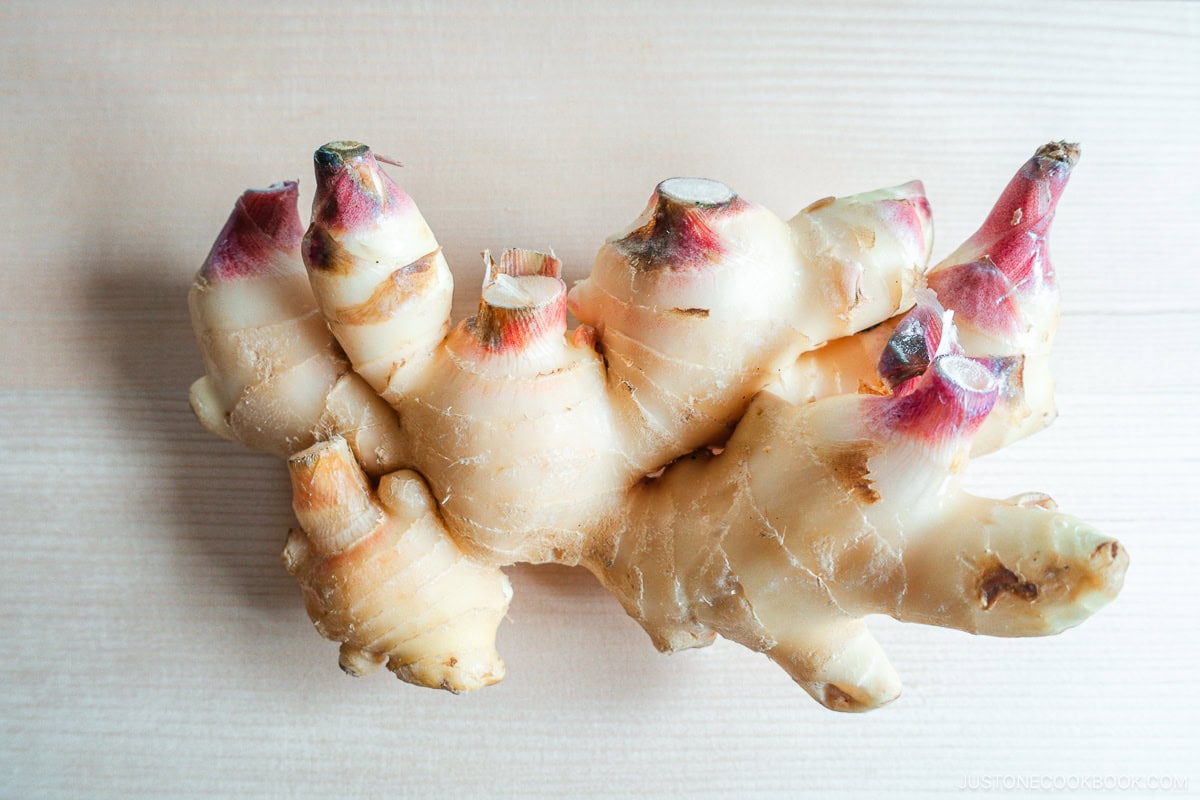
Where to Find Young Ginger
- Japanese/Asian grocery stores
- Farmers markets
- Etsy (I’ve purchased young ginger from Hawaii before)
- Good Eggs
FAQs
Can I use less sugar?
No. The ginger will not preserve well if you use less sugar. The least you can use is ½ cup of sugar for one batch of this recipe, and it is still quite tangy. If you prefer the taste of store-bought sushi ginger, use the higher amount of sugar indicated.
Can I substitute a different vinegar?
You can, but you’ll have to add more sugar if you use another type. By comparison, unseasoned rice vinegar is more mild, so it requires less sugar. As I mentioned earlier, use rice vinegar for an authentic Japanese flavor.
Can I use regular, mature ginger?
If you use regular ginger, it will be very spicy. To reduce the extra spiciness of the ginger, you must boil it longer than young ginger. I recommend blanching it in a pot of water for 2-3 minutes.
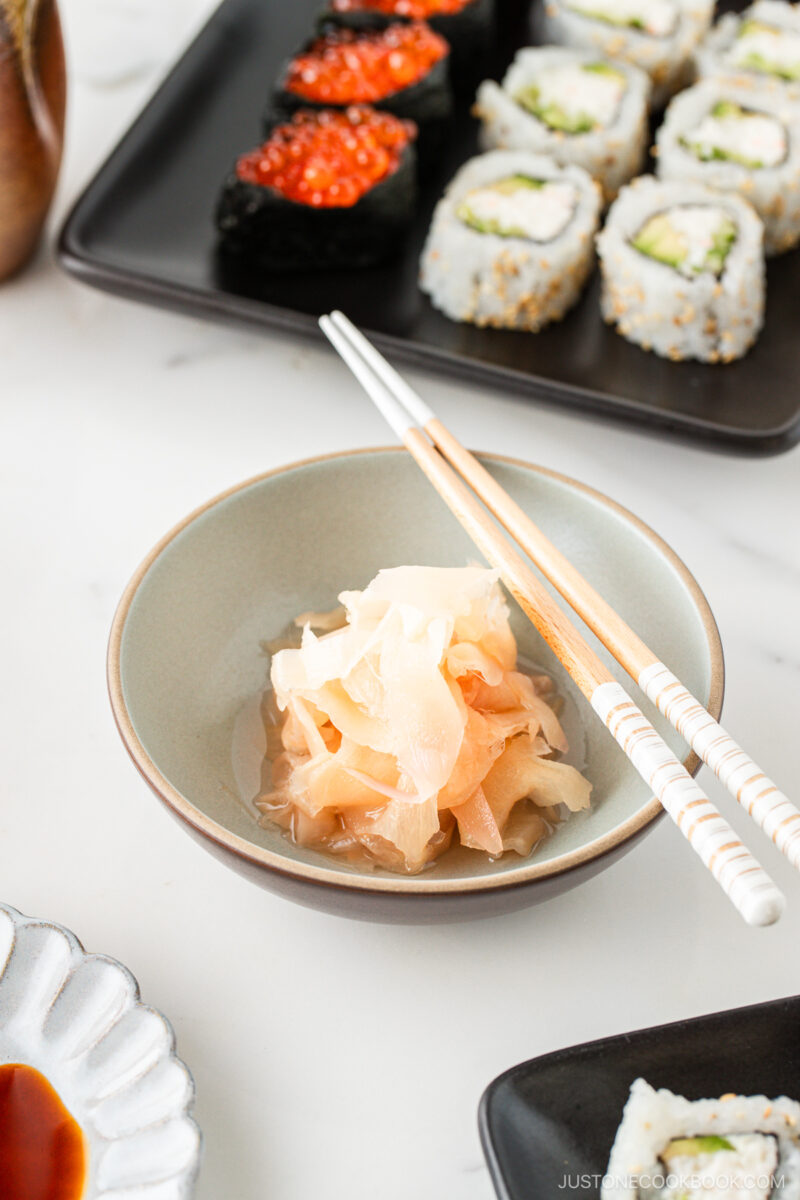
What to Serve with Pickled Sushi Ginger
When you find young ginger in the grocery store, you know what to do now! I hope you enjoy this homemade pickled ginger recipe.
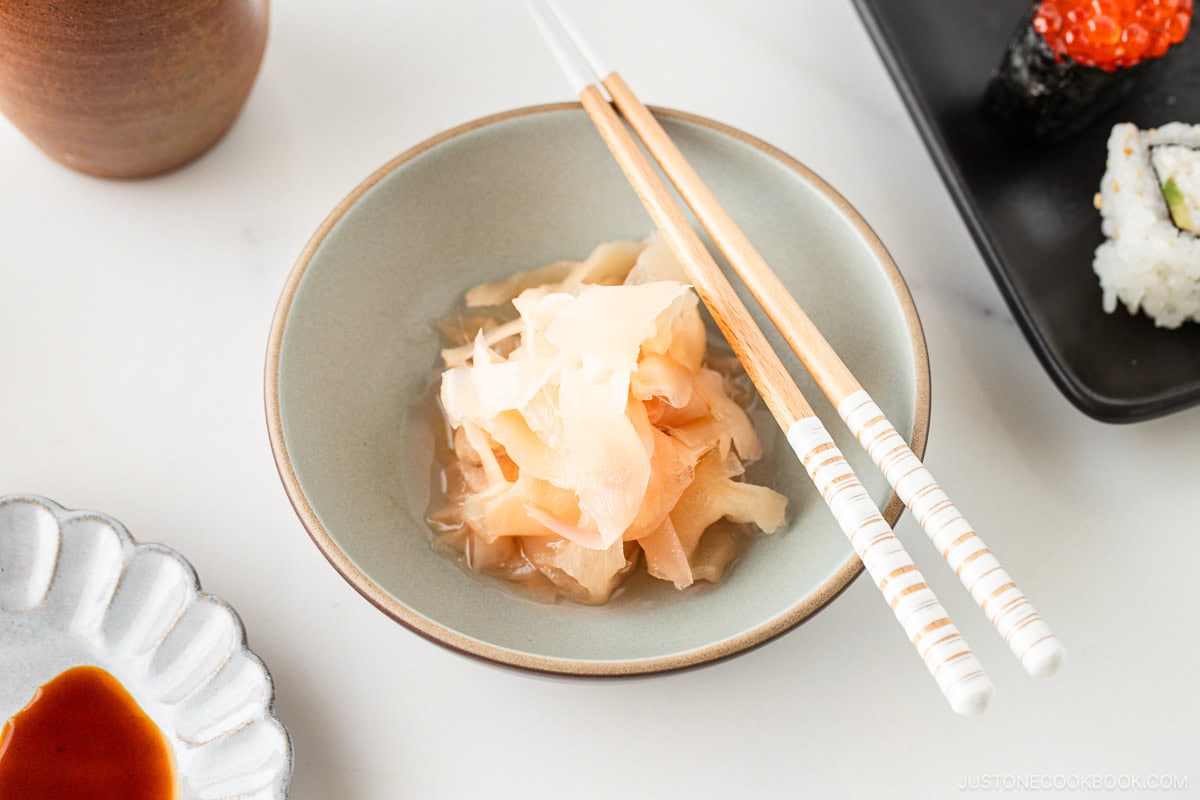
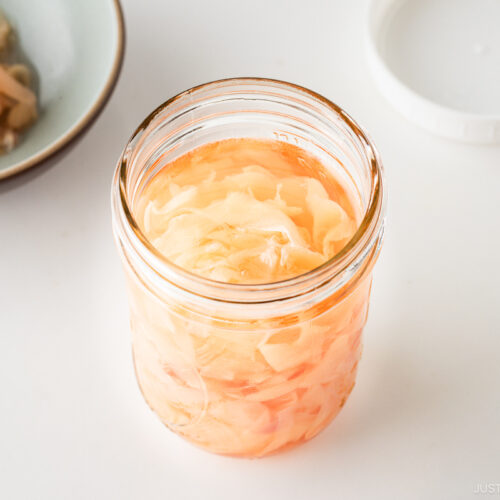
Pickled Sushi Ginger (Gari)
Video
Ingredients
- 8 oz young ginger (you can increase by up to 50% for this recipe; if you use regular ginger, it will be VERY spicy and you must boil it longer to reduce the spiciness)
- 2 tsp Diamond Crystal kosher salt (3–5% of the ginger‘s weight)
For the Sweet Vinegar (Amazu)
- 1 cup rice vinegar (unseasoned) (rice vinegar is mild compared to other vinegars; if you use another type, add more sugar to taste)
- ½–¾ cup sugar (I use organic cane sugar; use white granulated sugar for a clear pickling solution that showcases the ginger‘s pink color; DO NOT USE LESS SUGAR than specified because the ginger will not preserve well)
- 1 tsp Diamond Crystal kosher salt
Instructions
- Gather all the ingredients.
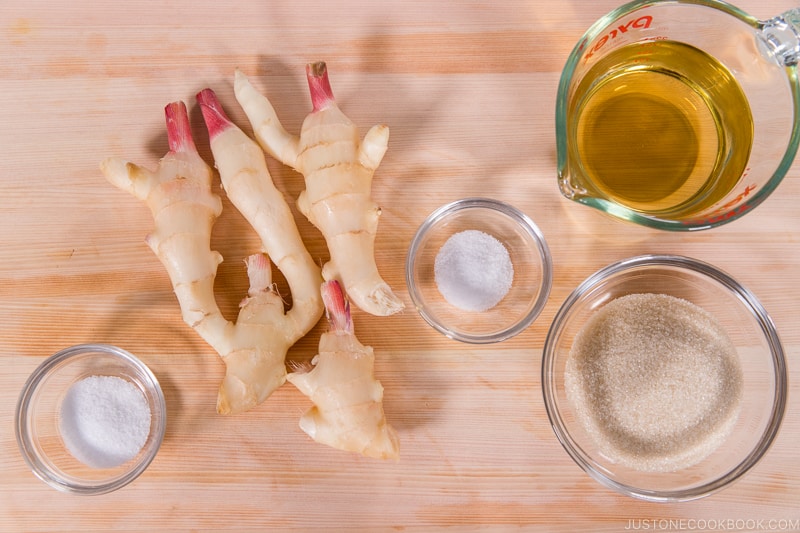
To Prepare the Ginger
- Using a knife (you can also use the back of the knife or a spoon), scrape off the brown spots and thin skin of 8 oz young ginger.
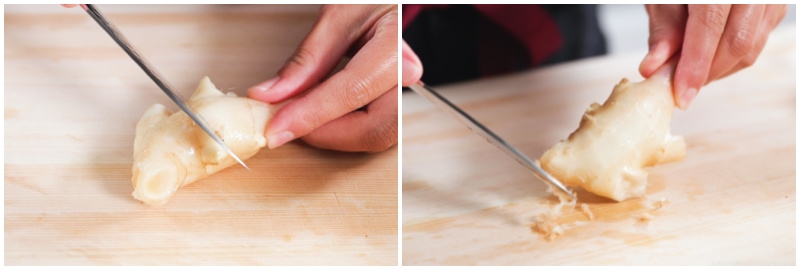
- Using a peeler, thinly slice the ginger. You can also use a mandoline. I prefer to use a peeler as it slices very thinly.
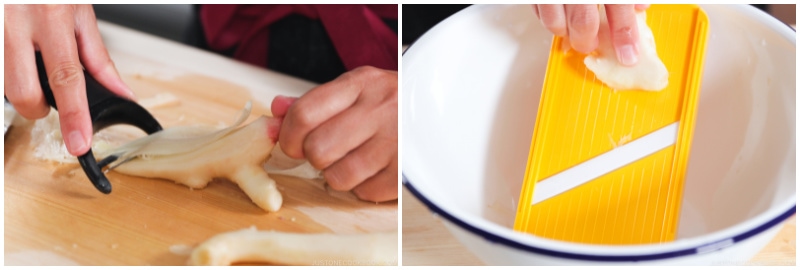
- When you can‘t slice the ginger anymore with the peeler/mandoline, use the knife to slice the rest thinly.
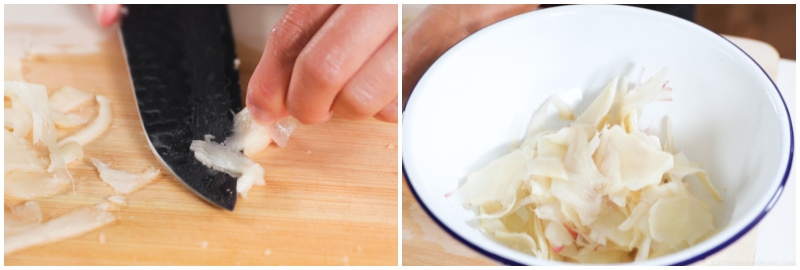
- Sprinkle 2 tsp Diamond Crystal kosher salt on the ginger slices and set aside for 5 minutes. The salt helps remove the moisture from the ginger so it can better absorb the pickling solution.
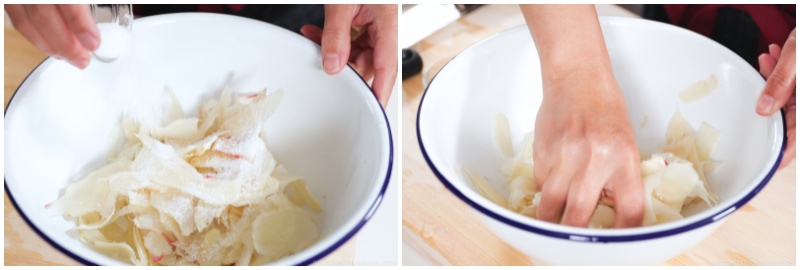
- Meanwhile, bring a medium pot of water to a boil. Once boiling, blanch the thinly sliced ginger for 1–2 minutes. If you want to keep it spicy, take it out after 1½ minutes. Tip: If you are using regular ginger (not young ginger), blanch it for 2–3 minutes to remove the extra spiciness.
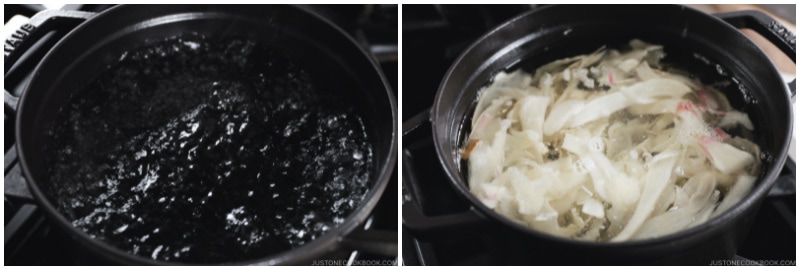
- Drain the ginger slices in a sieve. Let them cool slightly so you can handle them with your hands.
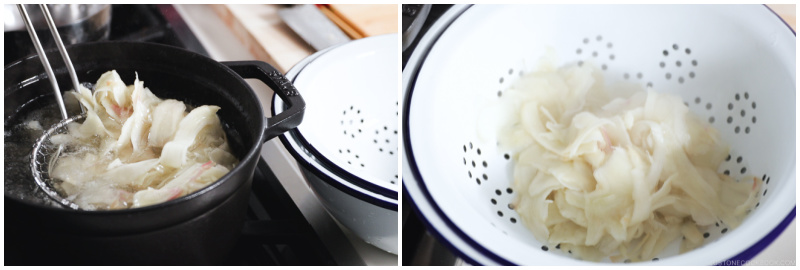
- With your clean hands, spread out the slices in a single layer over a large Japanese bamboo sieve (called bonzaru 盆ざる) or paper towel/wire rack. Set aside until it‘s completely cooled and dried out a bit more.
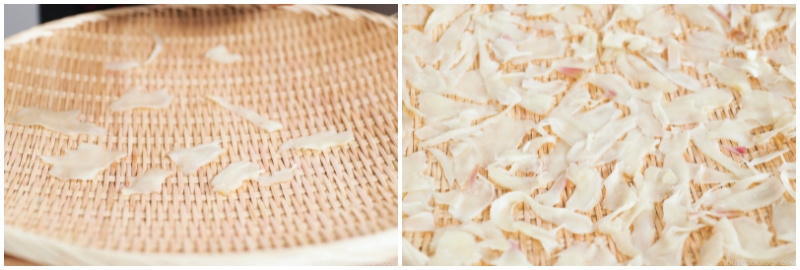
- Once cooled, squeeze the liquid from the ginger slices and put them in a sterilized airtight jar.
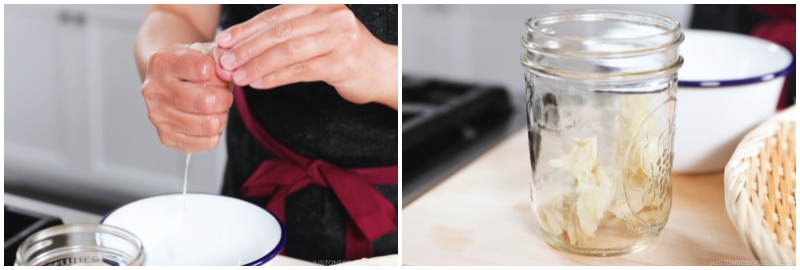
To Make the Sweet Vinegar (Amazu)
- In a small saucepan, add 1 cup rice vinegar (unseasoned), ½–¾ cup sugar, and 1 tsp Diamond Crystal kosher salt. Tip: DO NOT USE LESS SUGAR than specified because the ginger will not preserve well. The least you can use is ½ cup of sugar, and it is still quite tangy. If you prefer the taste of store-bought sushi ginger, use the higher measurement of sugar indicated.
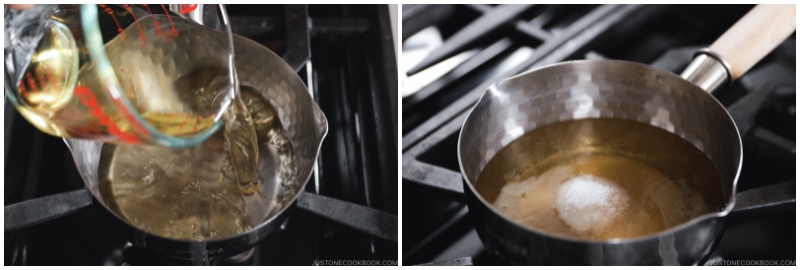
- Mix and bring it to a boil on medium heat. Cook the vinegar mixture until the strong vinegar smell has evaporated and the sugar has completely dissolved.
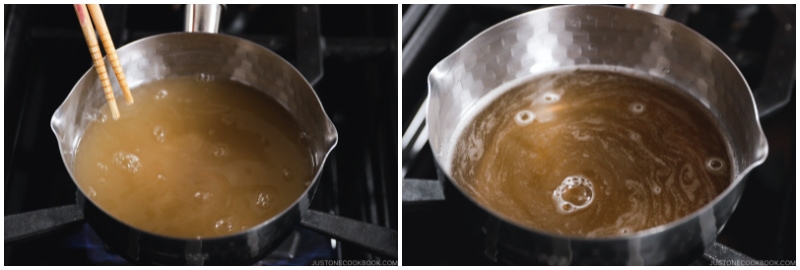
- Remove from the heat and let it cool slightly because the just-boiled liquid could break the glass jar. Pour the hot vinegar mixture into the jar with the ginger slices. Using clean chopsticks (or any utensil), mix it well together. Close the lid, let it cool completely, and refrigerate.
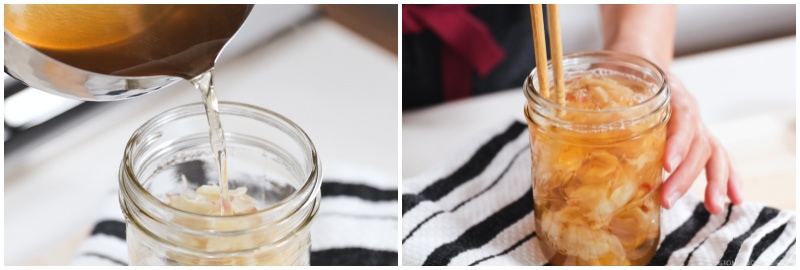
- After 4 hours or so, the ginger will turn slightly pink (see the photo below). I recommend waiting until the following day or a few more days to enjoy.
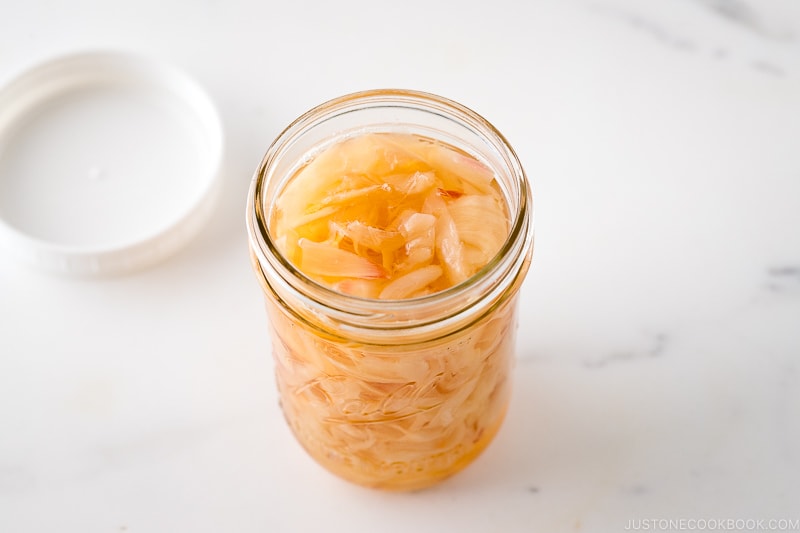
To Store
- Keep the pickled ginger in an airtight container and store in the refrigerator for up to one year. Always use clean utensils to remove the pickled ginger from the jar to avoid contamination and to help them keep for a long time.
Nutrition
Editor’s Note: This post was originally published on August 11, 2015. The images and content have been updated and a new video is added in June 2021.
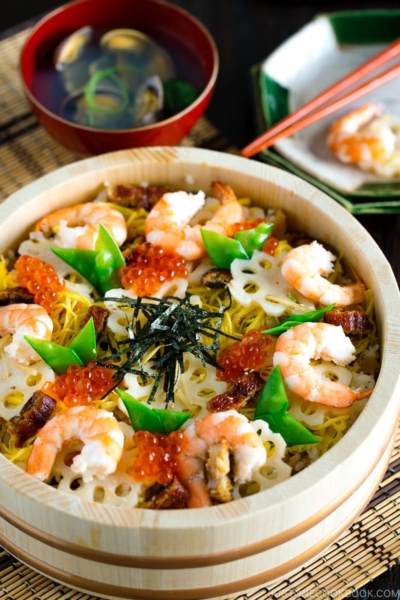
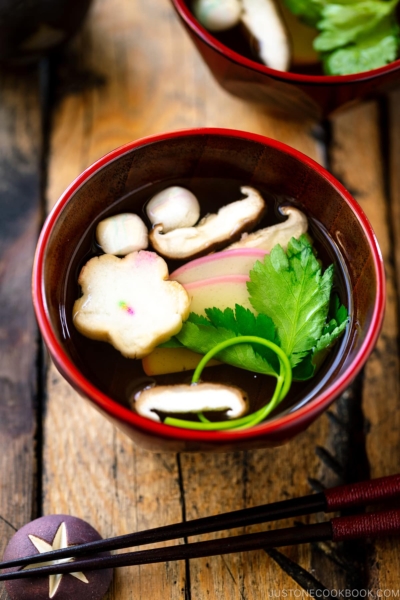
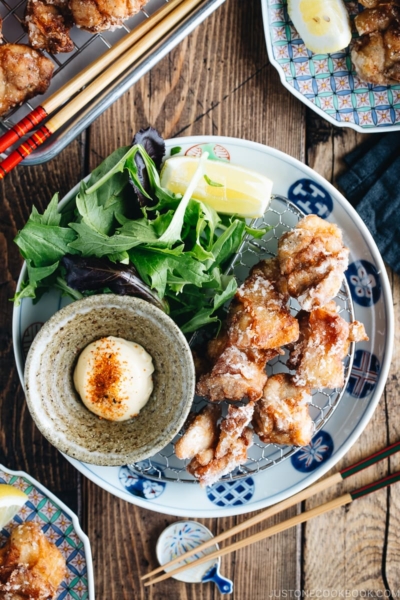
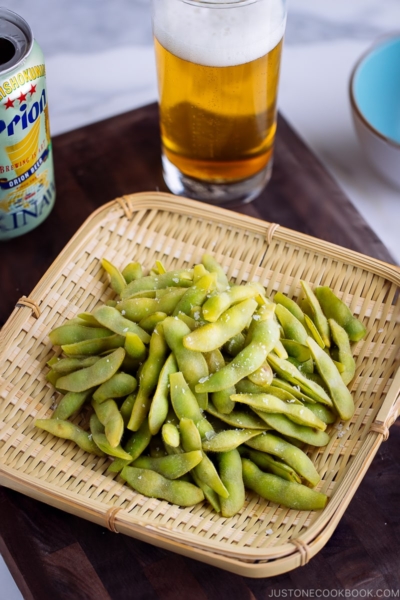
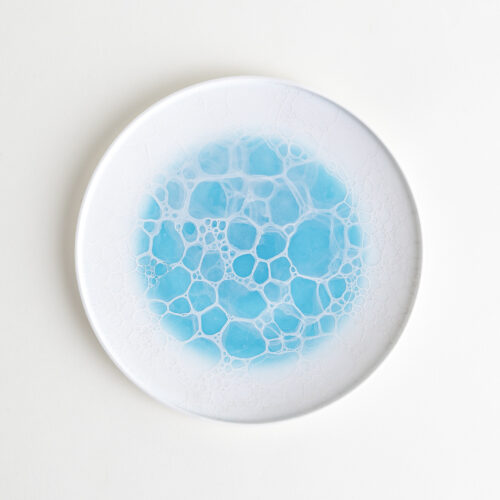
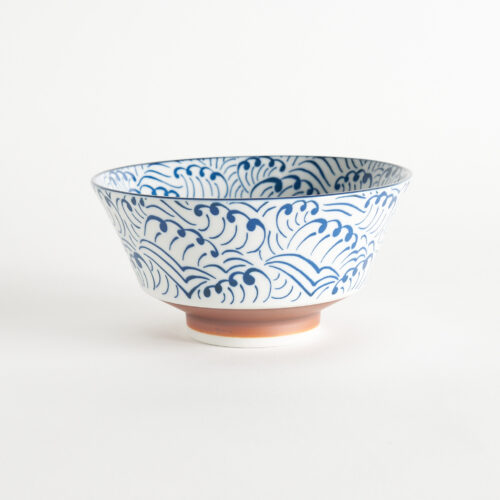
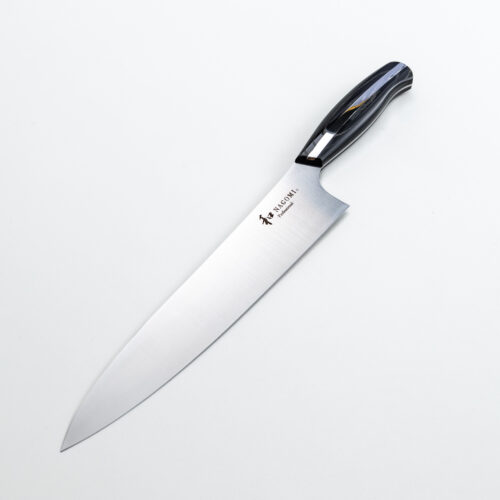
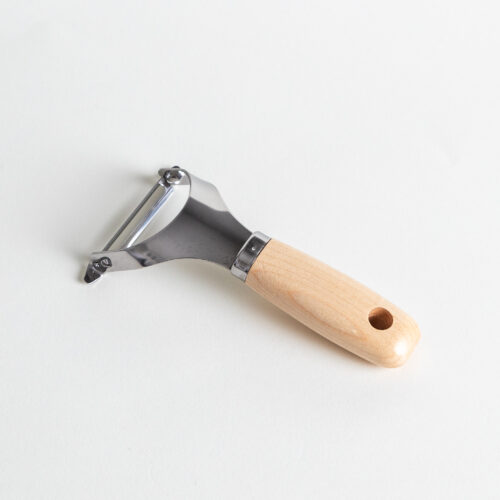
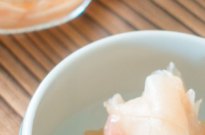
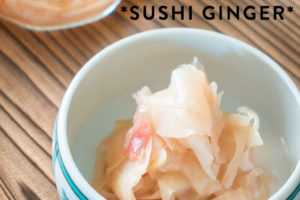
Love the recipe. Thanks. I used fresh old ginger. Got to use my Mandolin. I will let it soak for approx. a week then taste. Next batch I will try with Kombu – I found several recipes that use that…
Hi Michael! Thank you for trying Nami’s recipe and sharing your experience with us!
Love the recipe.
However one comment: the pink color doesn’t come from the red shoots – it comes from an enzymatic reaction of the young ginger (for example garlic if pickled can turn green or even blue’ish).
Hi Dominik! Thank you for reading Nami’s post and sharing the information.
thanks for the recipe. it’s not quite possible to find young ginger here in turkey, at least I’ve never come across, but I’ll try with regular fresh ginger. that should still be okay, right? and can I replace sugar with honey?
Hi, Gunseli! Thank you very much for reading Nami’s post!
Approximately half of the sugar amount is comparable to honey sweetness. But we have never replaced it before, so we are unsure what to expect.
If you try this, please let us know how it goes!